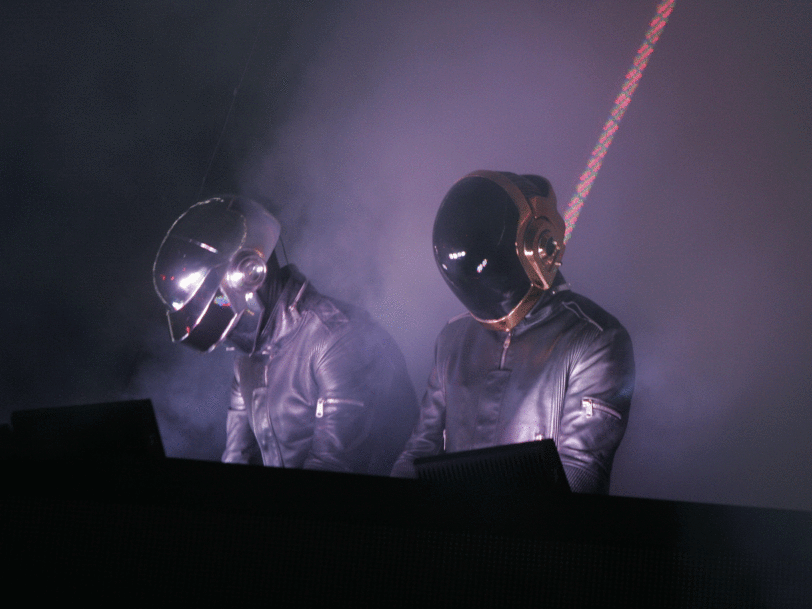Daft Punk, the French electronic music duo formed in the 1990s, are well known for their countless hits combining elements of techno, funk, disco, rock and house music to craft a new type of electronic dance music. Having collaborated with everyone from Pharrell Williams to Chic’s Nile Rodgers, The Weeknd and The Strokes’ frontman Julian Casablancas, and soundtracked Tron: Legacy, the 2010 sequel to the cult 1982 movie Tron, they not only led a revolution in dance music, but have pervaded all corner of popular culture. Not bad for a group that took named themselves after a comment in a negative review.
“Daft punky thrash”: new music, new energy
At 17 years old, Thomas Bangalter and Guy-Manuel De Homem-Christo formed a rock band called Darlin’ – named after a 1967 Beach Boys hit – with future Phoenix guitarist/keyboardist Laurent Brancowitz. A Melody Maker critic dismissed them as “daft punky thrash”, having no idea this would spark a French house movement that would change the pop culture landscape for good. Darlin’ disbanded, leading Bangalter and De Homem-Christo to discover a different kind of scene after attending a rave on a rooftop in Paris’ Beaubourg district. It was this moment that Daft Punk formed, ready to explore a new sound and conquer mainstream popular dance music for decades.
In September 1993, Daft Punk attended a rave where they gave a demo tape of their debut single, The New Wave, to Stuart Macmillan, one half of Glaswegian production duo Slam and co-founder of Soma Quality Recordings. Quickly growing in popularity through singles such as Da Funk, and gaining a live following thanks to their outrageous live performances, the duo signed a deal with Virgin Records, retaining creative freedom with a vision of a bright future ahead.




